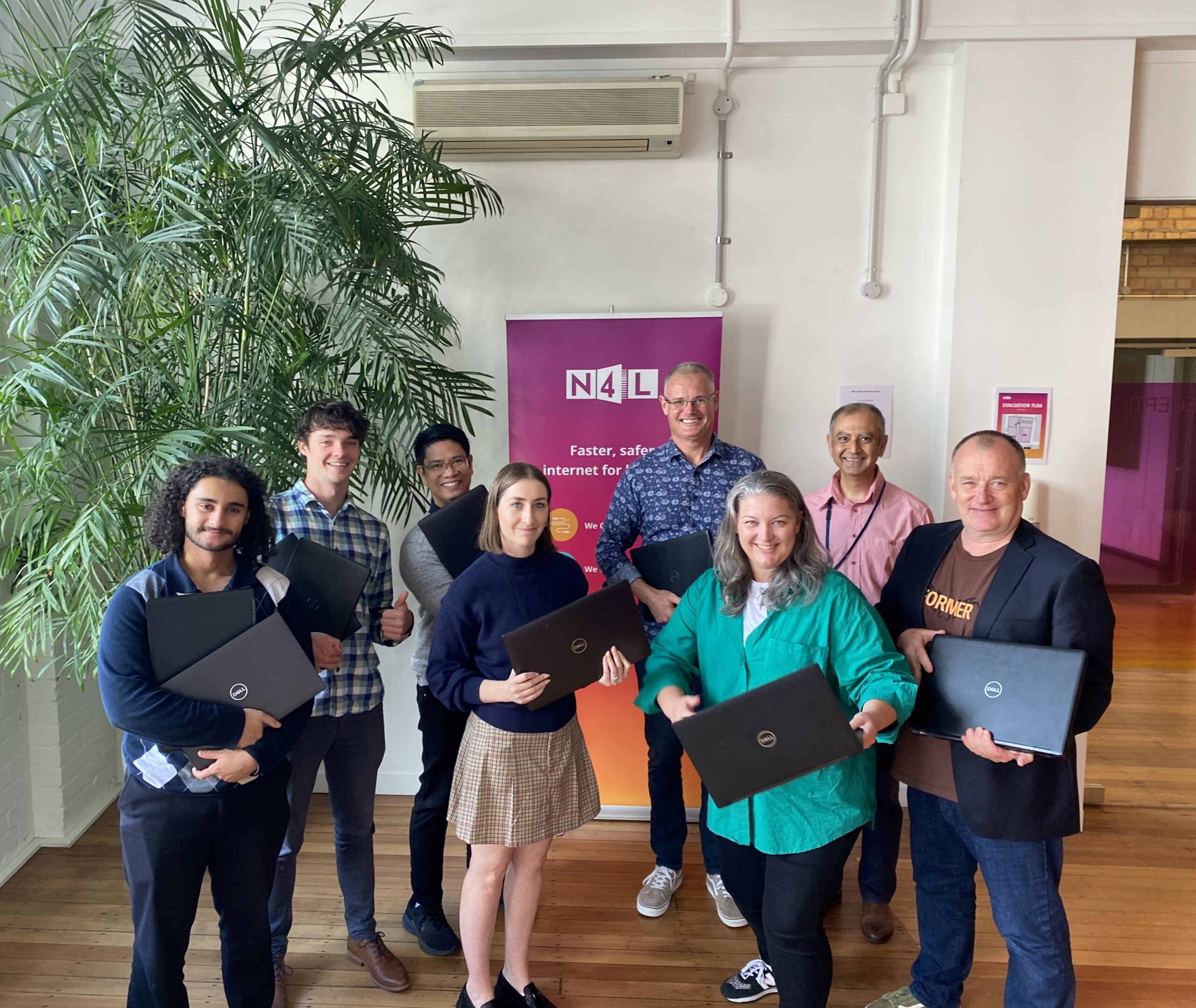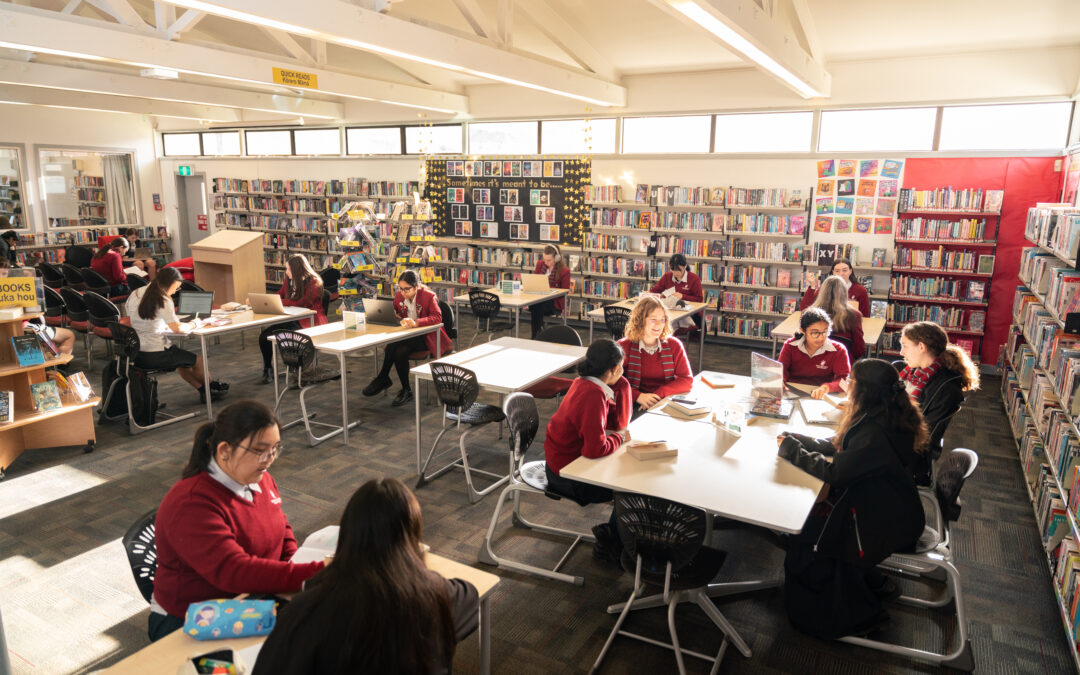The products and services Network for Learning (N4L) deliver help 905,000 tumuaki, kaiako and ākonga at over 2,500 schools enjoy daily access to safer and more secure internet on school and/or BYOD devices. But did you know many ākonga don’t have what many of us may take for granted every day – access to a device they can connect to the internet on?
This N4L blog shines a light on Recycle A Device (RAD), who are helping ensure everyone has the right to access a device and participate in digital learning. Their workshops are also teaching students how to refurbish and repair laptops while laying the groundwork for a possible tech career. N4L is proud to work with RAD and donate laptops to their cause, which firmly aligns with our own stated purpose of improving digital learning experiences and educational outcomes for all.
Digital inequity
It can be difficult to fully grasp the extent of digital inequity that exists in Aotearoa New Zealand. In 2022, N4L reported that nearly a quarter of schools on the Managed Network (around 625) told us fewer than half of their students have access to a device.
Having access to technology means people can access education, the economy, banking, information and everyday life. Certainly, it’s a lot easier to interact with the world when you have a digital device.
Recycle A Device (RAD) is a New Zealand-based organisation tackling digital inequity head on. Since 2020, RAD has been diverting unwanted or out-of-date laptops from landfill and refurbishing them, as well as opening doors to a potential future tech industry career for young people through their RAD Clubs.
Both RAD and N4L are aligned in the belief that equitable access to digital technology will empower young New Zealanders to succeed in education and beyond. N4L was proud, then, to be able to donate 25 Dell Latitude laptops to RAD in 2024 for their programme of refurbishment and redistribution.
Half of those laptops went to Kaitaia Digital Hub for refurbishment, and then were gifted to whānau connected with the hub or via a local primary school. The other half were refurbished by Rototuna High School for distribution to their students or Dinsdale Library. N4L is aiming to continue to donate laptops to RAD in the future.

A problem flying under the radar
N4L’s Head of Product, Sid Kumar, a founding volunteer member of RAD’s Kaitiaki, says digital inequity in the community is an acknowledged but hidden problem, one you might only become aware of when you actually experience it.
“When I began working with RAD,” Sid says, “I knew a big challenge was the availability of devices. But then reality hit – most of us don’t actually see the problem. Digital equity only surfaces when you actually experience inequity. Those who have never experienced it can never understand it. That was the blind side I had: I had never experienced inequity. Laptop, smartphone, internet connection – all those things are there for us. But when you see first hand that those things often can’t be taken for granted, you realise there’s a problem that needs to be solved.”
Donating laptops and RAD workshops
When laptops are donated, RAD sends them to a data sanitisation and logistics centre to be wiped and boxed up. The devices are then shipped out to schools to work on them in workshops.
RAD runs two types of workshops in schools. The one-day Fix One Keep One workshop is where students are coached to fix laptops and take them home that same day for immediate access. The second is RAD Club, an ongoing refurbishment group. These workshops are providing ākonga with training in the tech skills needed to diagnose and refurbish pre-loved laptops. They gain hands-on experience, STEM skills training and leadership opportunities, maybe even paving the way for a future career in tech. Currently, there are more than 40 RAD clubs operating at schools and in community organisations around Aotearoa.
The numbers and how you can help
To be able to continue to do their important work, RAD relies on the generosity of organisations and donations of laptops to meet community demand.
In 2024, more than 2,900 laptops were refurbished and gifted to those without a device and 658 rangatahi learnt new STEM skills. 5.8 tonnes of e-waste given new life and there was 575 tonnes of total CO2 emissions avoidance. RAD can refurbish laptops for as little as $146 per device – a cheap, efficient and sustainable way of getting devices into the hands of young people or those in the community that need them. Demand, however, continues to exceed supply, and they’re asking for other organisations to help so they can bridge this gap.
Bronwyn Scott, General Manager I Manahautū of Digital Future Aotearoa, which RAD is a part of, says while most people admire the valuable work RAD does, the organisation has ongoing challenges with obtaining donated laptops.
“There are so many young people out there that aren’t able to fully participate in their education, and that’s not ok,” she says. “We all know that being able to participate in the digital world is critical to being able to thrive. A laptop gives opportunity, and that’s important when our rangatahi (young people) are our future innovators and creators.
“When the corporate and government sectors do their refreshes of devices and give us their old devices, we can turn them into something amazing for any young person. But we rely heavily on contributions for what we do. We’d love to hear from any organisations if they’re able to help us.”
Get involved
N4L is proud to support the work of RAD. If you or your school would like to participate in RAD workshops or RAD Club, you can find more information here. If you’re able to donate laptops or contribute, contact RAD on [email protected]. More info here.
If you’d like to hear more from N4L, or see more blogs like this, why not subscribe?

